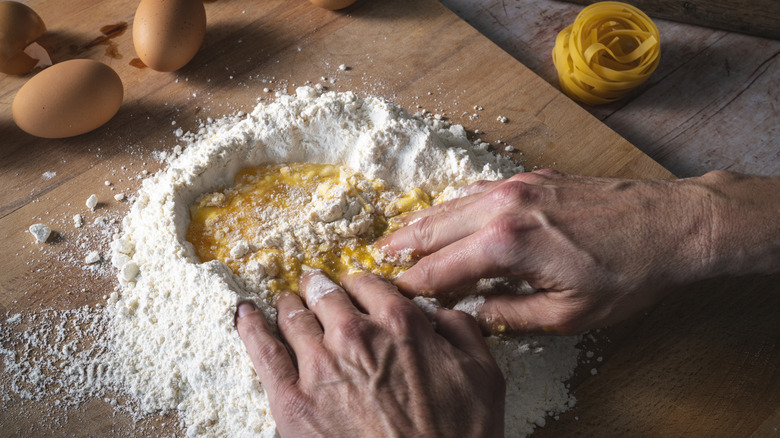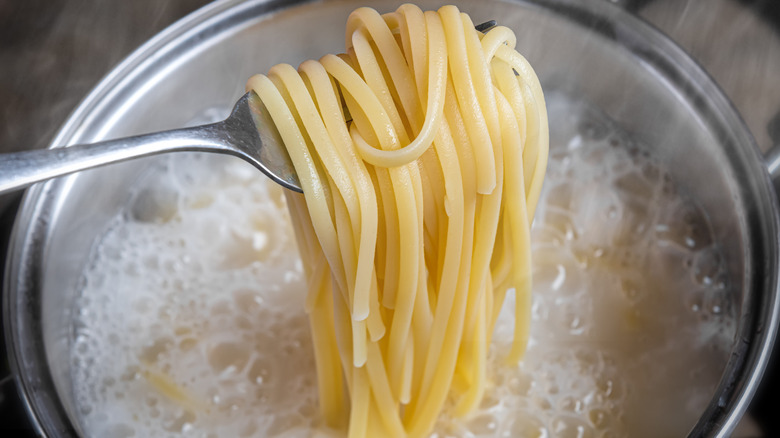Should You Be Adding Salt To Pasta Dough?
Ready to craft fresh pasta from scratch, a last-minute question looms in your head: Should you reach for the salt shaker? You're used to salting the water when you cook pasta, but should the dough also be salted? The answer to salting pasta dough might not be what you'd expect.
Adding salt to pasta dough often sparks debates among pasta enthusiasts. Some champion adding a touch of salt, arguing that it enhances the pasta's flavor and gives the dough a more pliable texture. If salt is used, it should be fine rather than coarse, as coarse salt can make the dough uneven. However, over-salting pasta dough can sometimes be unwarranted and potentially counterproductive to the entire pasta-making, kneading, drying, and shaping processes, mainly when dealing with high-protein doughs that include eggs or semolina flour. An excess of salt can lead to gluten deterioration in the dough. So while the dough is easily workable and kneadable, the cooked pasta may be less elastic with a texture that's not quite al dente.
Pasta dough does not need salt, but Asian noodles do
Culinary practices can vary significantly depending on the specific type of noodle or pasta being made. For instance, in creating handmade Asian noodles like udon and biang biang mian, salt is added to the dough to increase its extensibility, making the noodles bouncy and chewy (known as QQ in Taiwanese). This emphasizes that there's no one-size-fits-all approach to salting noodle dough, although, for high-protein pasta dough, a good rule of thumb is to add only a pinch of salt to the dough or none at all.
In most cases, reserving the salt for the boiling water in which the pasta will cook is a safe bet. This allows you to maintain control over the pasta's final seasoning level without the risk of compromising the dough's texture or the finished product's mouthfeel. With this newfound insight, you're ready to create your homemade pasta. A blend of flour and eggs forms the base, and a dash of salt seems tempting. Yet, knowing the potential downsides, you may decide to withhold it. The flavor can be adjusted later, and this approach allows you to maintain complete control over the consistency and taste of your pasta.

